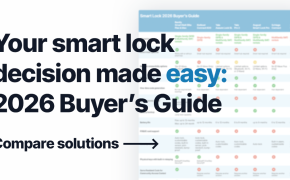Disclosing ancillary fees, also known as, “Junk fees” or “hidden fees” have certainly been in the news and the target of legislation recently. Whether it be for concert tickets, hotel rooms, or airline tickets, consumers want to know the full price they can expect to pay before they checkout. The Federal Trade Commission (FTC) and consumer advocates have intensified their focus on regulating these hidden fees, urging businesses to adopt more transparent pricing practices.
For real estate operators, the scrutiny is increasing as renters face the burden of added fees on top of rising rents. In the rental property industry, failing to disclose fees properly can lead to potential legal troubles and damage to your brand reputation.
What are Junk Fees and Why Do They Matter in the Rental Industry?
Junk fees refer to hidden or unexpected fees charged to consumers that aren’t clearly communicated upfront. These fees may appear as unavoidable costs but often aren’t tied to actual services provided. This practice has drawn the attention of regulators and consumer advocacy groups, as seen in the ticketing industry, where concert-goers often face sticker shock due to undisclosed service fees. Similar issues have surfaced in real estate. Renters are feeling blindsided by ambiguous charges.
In rental properties, disclosing ancillary fees for things like application processing, pet services, parking, or even convenience fees for paying rent online can reduce the likelihood of litigation. According to the California Apartment Association, the FTC is considering new regulations to eliminate hidden fees, creating potential compliance challenges for rental housing providers. The National Consumer Law Center (NCLC) also warns that these fees could contribute to escalating rents and affordability issues.
With mounting public pressure and the threat of new regulations, disclosing ancillary fees is crucial for property operators to ensure their fee structures are clear, transparent, and legally sound.
Where, When, and How Should You Disclose Fees?
To avoid legal complications, it’s essential that operators disclose all fees openly and consistently throughout the rental process. Here are the key places where these disclosures should occur:
- On the Listing: Transparency starts at the very beginning of the prospective renter’s online property search. Include any recurring or one-time fees directly on your rental listings. Potential renters should be able to see upfront what costs they’ll be responsible for beyond the base rent. This could include pet fees, parking fees, or amenity access charges.
- Pricing/Costs Page on Your Website: Having a dedicated section on your property’s website that outlines all possible fees is another crucial step. This not only builds trust with potential tenants but also helps ensure consistency in communication across all digital platforms. Make sure the fees are clearly listed and explained, leaving no room for ambiguity.
- In Email Communication Before the Tour: Sending potential tenants an email with all fees clearly laid out before they even step foot on the property is a proactive way to keep everything in writing. This creates a paper trail that can protect you if any disputes arise later about fee disclosures.
- Leasing Team Talk Tracks: Your leasing team needs to be well-versed in explaining the full scope of fees. Ensure they have a standardized talk track to follow during property tours and communications with prospective tenants. This guarantees that fees are verbally disclosed, reducing the chance for surprises later on.
- In the Lease: The lease agreement is your final and most critical opportunity to disclose any fees. It should include every cost the tenant will be responsible for throughout the term of their stay. Clear terms and conditions will help prevent legal disputes down the road.

What to Do for New Services and Fees for Existing Tenants
Sometimes, new services or additional fees are introduced for existing tenants. While it’s tempting to implement these fees immediately, it’s essential to proceed with caution to avoid breaching lease agreements or surprising tenants unfairly.
- Lease Addendum: For any mid-lease changes, a lease addendum may be necessary. This document, signed by both parties, will detail any new services and the associated fees. This allows tenants to clearly understand any additional charges and helps protect your business from claims of hidden fees.
- Wait Until Renewal to Assess New Fees: For existing tenants, it’s often better to wait until their lease renewal to introduce new fees. This gives tenants the choice to continue their tenancy with full knowledge of the updated costs or to opt-out if the new terms aren’t suitable for them.
- In Renewal Talk Track: Just as with new tenants, it’s essential for leasing teams to have a well-rehearsed talk track that includes full disclosure of any new or revised fees during renewal negotiations.
Always Explain the Reason for Fees
To help renters understand and accept ancillary fees, it’s important to communicate the value they bring and ensure transparency.
One strategy is to clearly explain the services tied to the fees, such as the maintenance of shared amenities, security features, or premium services like covered parking or high-speed internet. Providing a breakdown of what each fee covers demonstrates that these costs directly contribute to enhancing the tenant’s living experience.
Another approach is offering some services as optional, giving renters the flexibility to opt in or out based on their needs. For example, a premium fee for covered parking or EV charging might be more palatable to renters when presented as an option rather than an obligation.
Lastly, ensuring that fees are reasonable and within legal limits will build trust and show that they aren’t arbitrary or inflated, helping renters feel that they are paying fair and necessary charges. Charging exorbitant fees could attract legal scrutiny, especially in light of recent consumer protection efforts. Always check your state and local regulations to ensure that your fees are compliant.
By disclosing ancillary fees all fees openly and ensuring that they are transparent, reasonable, and legally sound, property operators can avoid the pitfalls of “junk fees” and protect themselves from potential litigation. Transparency builds trust and ensures that tenants feel informed, rather than blindsided, when they move into their new homes.





